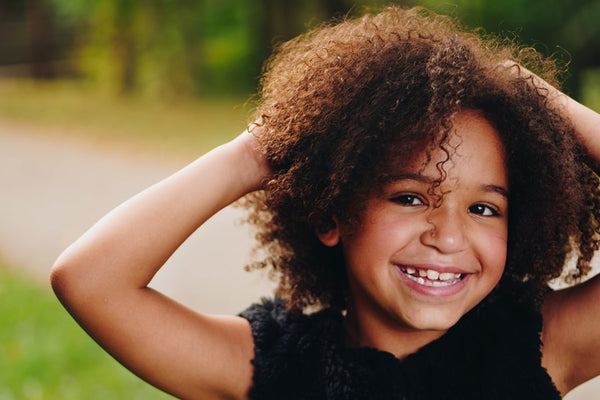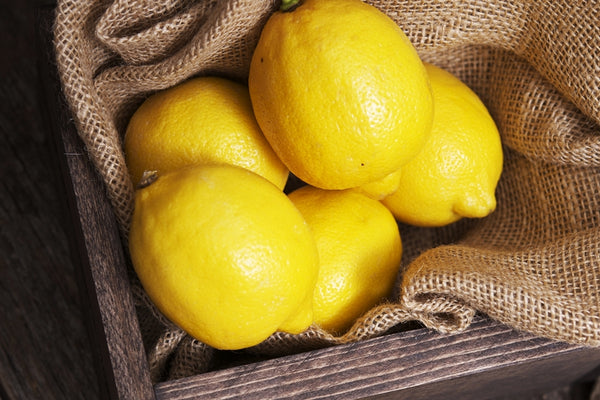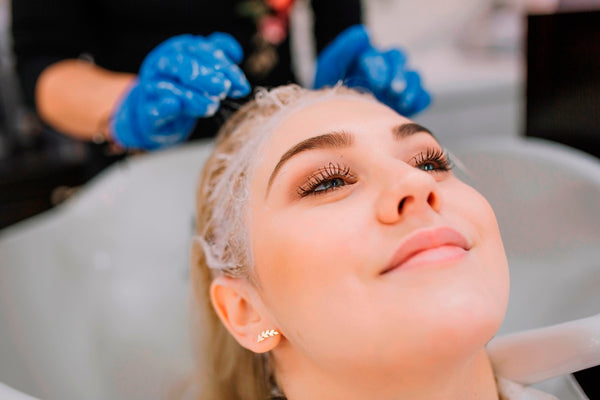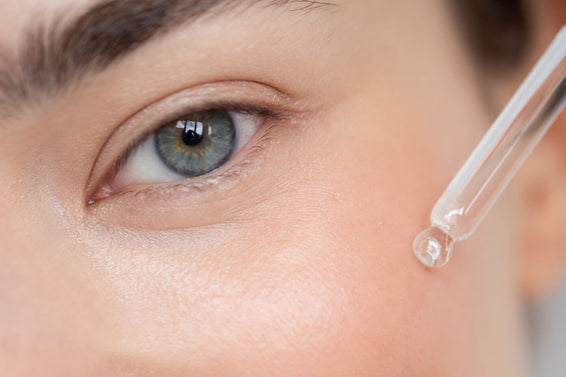Dandruff
You should not get used to falling flakes aside from snow. Dandruff is a common hair concern that can affect anyone. There are various ways to prevent dandruff, but first, you need to understand how it happens. Learn about dandruff, how it happens, and the best hair care routine that can prevent it.
When dealing with dandruff, it’s important to know what causes this condition. There are various ways to alleviate its symptoms. Find out the best way to nourish and keep scalp healthy.

What Causes Dandruff
Various factors cause dandruff. When you know how dandruff happens, you can prevent it from getting worse by targeting the root of the problem. Here are the most common causes that trigger dandruff:
- Dry Skin – If you have dry skin, you’re prone to flaking, which can develop into dandruff. It can happen anywhere in the body with the most commonly affected areas being places with a large amount of hair follicles. To prevent dandruff caused by dry skin, use moisturizers often and make sure to hydrate the body.
- Oily Scalp – Dandruff is most commonly caused by a yeast called Malassezia. It feeds on sebum and speeds up the growth and death of skin cells. This causes the buildup of dead skin cells that form into flakes. Control oil production on the scalp by using essential oils that provide moisture while balancing the pH levels on the scalp.
- Allergic Reaction – Allergic reaction to food, medication, and hair products can trigger dandruff. Change the products you use or take medicine for allergy to alleviate symptoms of dandruff.
- Dermatitis – Dermatitis is a skin condition that causes dandruff all over the body. You can use topical medications to ease the symptoms of dandruff.
- Stress – Stress can worsen the symptoms of dandruff. It can trigger the hormones linked to oil production, which produces more oil for the yeast to feed on to. Stress management has various benefits for the body including less risk of having dandruff.
- Sensitivity to Hair Products – Some hair products tend to be too harsh on the scalp. This can cause excessive dryness on the scalp and speed up the shedding of dead skin cells too. Look for the suitable hair products to use on hair and scalp. See this collection of high-quality hair care products for more information.
READ MORE: Hair Care
Are You Prone to Dandruff?
Dandruff can affect anyone but you might be one of those who are prone to dandruff. If you fall into these categories, make sure to follow a good hair care routine to prevent dandruff from happening:

- Age – Adolescent and older people are more likely to experience dandruff. During adolescence, hormones linked to oil production act up. They can trigger excess oil production on the scalp, which feeds the Malassezia globosa. Meanwhile, older people do not produce enough moisture on their body, which leads to dry scalp.
- Gender – Dandruff is more common for men than women. This is because men produce more sebum on their scalp compared to women. This makes scalp a better breeding ground for fungi and bacteria. Men usually use products that can are harsh on hair and scalp as well. This can irritate the scalp and trigger dandruff.
- Skin Type – Oily skin and dry skin can be vulnerable to dandruff. Oily skin tends to produce excessive oil on the scalp, which feeds fungi that are the primary cause of dandruff. Dry skin, on the other hand, is more prone to flaking. Visit the page below to find out your skin type and its characteristics.
- Genetics – Genetics can play a part in your chances of having dandruff too. Dandruff can be inherited. With a proper hair care, you can prevent dandruff from happening and damaging your scalp.
Symptoms of Dandruff
Falling flakes are the primary symptoms of dandruff. However, there are other signs you need to look out for. When you know about the symptoms of dandruff, you’ll find out the best way on how to treat it. Here are the most common symptoms of dandruff:

- Falling Flakes – Flakes on scalp form when dead skin cells are shed only to be replaced by new skin cells. The buildup of dead skin cells on the scalp and other debris causes flaking. Flakes that form on the scalp are shed through brushing hair or scratching the scalp.
- Redness – Skin can get red and inflamed when your scalp is irritated. Frequent scratching can irritate the scalp. The red scalp can cause discomfort and pain. It might lead to scabbing as well, which you can mistake for flakes.
- Itchy Scalp – Dandruff causes an itchy sensation on the scalp. Scratching the scalp will make the flakes fall. Excessive scratching can lead to irritation, which makes dandruff worse.
- Scaly or Crusty Scalp – Dandruff form scales or crusts that can fall off. It is often an effect of dermatitis. However, having scaly or crusty scalp can lead to hair fall. Which is why it's best to control dandruff efficiently if you have a crusty scalp. Visit the page below to know more about hair fall. Here are other symptoms of hair fall and how dandruff affects the resilience of hair.
READ MORE: Hair Loss
How to Get Rid of Dandruff
Dandruff can be a short-term scalp condition that may alleviate with the proper remedy. There are various ways to get rid of dandruff. Depending on how bad your dandruff is, you can try these treatments:

Medication
Treatment Products
READ MORE: Tea Tree Oil Shampoo and Conditioner
Home Remedies for Dandruff
Get rid of dandruff in a safe and healthier way with these home remedies. These remedies are easy to do and very affordable. There are products in your kitchen that work as natural remedies for dandruff. Try using these home remedies at home.

Dandruff can be controlled with the right hair products. There are natural hair treatments that can alleviate its symptoms as well. Try these hair treatments to keep hair and scalp dandruff-free.
READ MORE: Hair Treatment
Tips for Dandruff-Free Scalp
Dandruff is a scalp condition that you can’t completely cure. Dandruff may stop and recur many times. If you are prone to dandruff, you can experience it for short or long periods numerous times. However, this does not mean that you can’t control dandruff. Here are some tips to prevent dandruff for a clear and clean scalp:

- Rinse your hair every day. Rinse hair daily to get rid of the excess oil, dead skin cells, and other debris that can build up as flakes. This doesn’t mean that you have to shampoo every day, especially if you have curly or kinky hair. You can rinse hair with water, conditioners, dry shampoo, or natural cleansers.
- Brush your hair often. Brushing hair does not only untangle knots. It helps distribute the oil from the scalp to the strands. This prevents the buildup of excess oil on the scalp. If you have dandruff, this will help remove flakes too.
- Exfoliate your scalp twice a month. Exfoliating the scalp is not common knowledge. There are a lot of benefits in exfoliating the scalp. You can loosen flakes, prevent the buildup of dead skin cells, and stimulate the blood flow on the scalp. These benefits help prevent dandruff by keeping the scalp healthy and clean. You can use ingredients in your kitchens such as grounded coffee beans, salt, and sugar.
- Lightly moisturize your hair. The scalp produces a natural oil that moisturizes your hair. Applying conditioners to the scalp can be a factor that causes dandruff. It can block the follicles, triggering the overproduction of oil. The right way to moisturize hair is to use conditioners or oils and apply it to hair starting from the midlength to the tips.
- Apply oils or hair mask to hair regularly. Hair masks and oils do not only moisturize the hair. They help restore the balance of pH levels on the scalp, which is necessary for preventing dandruff. Oils like argan oil absorb well into scalp and do not leave residues. It contains antioxidants and vitamins that inhibit the development of dandruff. They nourish hair to make it softer and smoother as well. Discover more benefits of using argan oil for hair and scalp.
Curb dandruff with natural remedies that will give you a clean scalp. Practice healthy hair care habits and try these easy tips to get rid of the flakes. With a healthy routine, you can ensure that your scalp remains dandruff-free. Remember that a clean scalp grows shiny and resilient hair.













